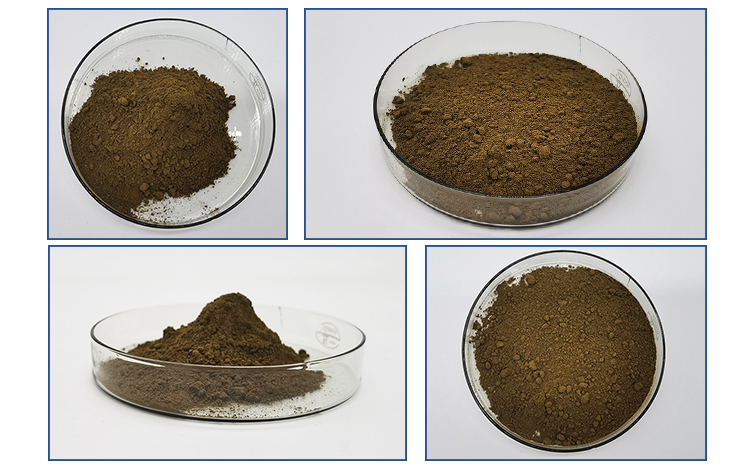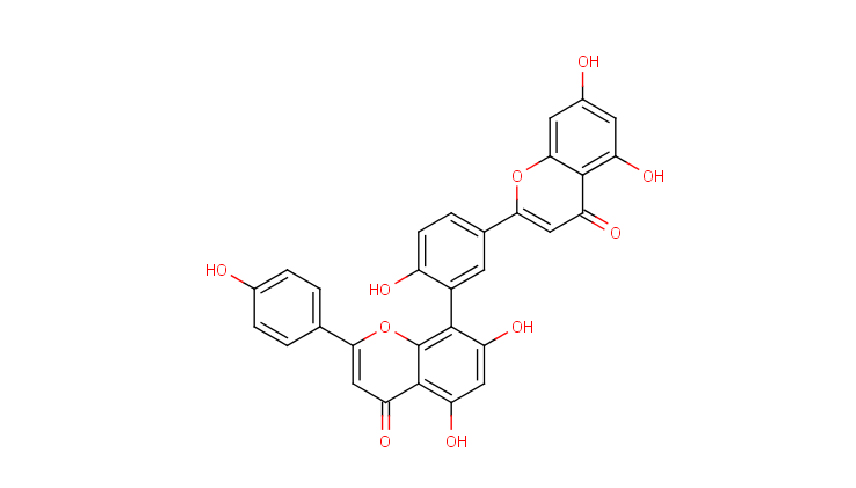Amentoflavone is a natural compound found in a variety of plants, including Ginkgo biloba and Hypericum perforatum (St. John’s wort). It has gained attention due to its potential health benefits and pharmacological properties. Here’s an overview of its effectiveness, side effects, and special considerations:
Effectiveness of Amentoflavone:
1.Neuroprotective Effects: Amentoflavone has shown promise in protecting neurons from damage and degeneration. This makes it potentially beneficial in conditions involving neurodegeneration like Alzheimer’s disease and Parkinson’s disease.
2.Anti-inflammatory Properties: It exhibits anti-inflammatory effects, which could be useful in treating conditions where inflammation plays a significant role, such as arthritis.
3.Antioxidant Activity: Amentoflavone acts as an antioxidant, helping to neutralize harmful free radicals in the body. This property is valuable for overall health and may contribute to its neuroprotective effects.
4.Anxiolytic and Antidepressant Effects: Some studies suggest that amentoflavone may have calming effects and could potentially be used to alleviate symptoms of anxiety and depression.
5.Anticancer Potential: Research has indicated that amentoflavone could inhibit the growth of certain cancer cells, although more studies are needed to understand its full potential in cancer treatment.

Side Effects of Amentoflavone:
While amentoflavone is considered relatively safe when used in appropriate doses, there are a few considerations:
1.Gastrointestinal Issues: Some individuals may experience digestive upset, such as nausea or diarrhea, especially at higher doses.
2.Interaction with Medications: Amentoflavone may interact with certain medications, such as blood thinners or antidepressants, potentially affecting their efficacy or increasing the risk of side effects.
3.Allergic Reactions: As with any natural compound, allergic reactions are possible, although they are rare.
Special Attention of Amentoflavone:
1.Dosage: There is no established standard dosage for amentoflavone. If considering supplementation, it’s advisable to start with small amounts and monitor for any adverse effects.
2.Interaction with Medications: If you are taking medications, especially blood thinners or antidepressants, consult with a healthcare provider before using amentoflavone supplements to avoid potential interactions.

3.Quality of Supplements: If opting for supplements, ensure they are from reputable sources to minimize the risk of contaminants or inaccurate dosing.
4.Pregnancy and Breastfeeding: There is limited research on the safety of amentoflavone during pregnancy and breastfeeding. Therefore, it’s best to avoid use during these times unless recommended by a healthcare provider.
In conclusion, while amentoflavone shows promise in various health applications, more research is needed to fully understand its effectiveness and safety profile. As with any supplement or natural remedy, it’s important to use it cautiously and under the guidance of a healthcare professional, especially if you have underlying health conditions or are taking medications.
